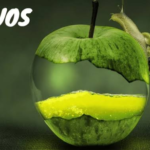On a foggy autumn morning, Maria found herself at the bustling crossroads of a small European town. She had traveled there with one purpose: to uncover the secrets of deț, a concept that had intrigued her ever since she stumbled upon it in an old, dusty book. The word had a mystical allure, suggesting something ancient, yet still vibrant and full of life. As she wandered through the narrow, cobblestone streets, Maria couldn’t help but feel that she was on the cusp of a discovery that would change her understanding of the world.
What is Deț?
Deț is more than just a word; it is a concept deeply rooted in history and culture, representing a unique blend of tradition and modernity. It encapsulates a way of life, a philosophy that has been passed down through generations. At its core, deț is about balance—finding harmony between the old and the new, the simple and the complex. It’s about embracing change while honoring the past, and in doing so, creating something that is both timeless and relevant.
The Origins of Deț
The origins of deț are shrouded in mystery, but it is believed to have emerged from the ancient traditions of Eastern Europe. The word itself is derived from an old dialect, meaning “to connect” or “to bind.” This etymology reflects the core idea of deț: the connection between people, nature, and the world around them. It is a concept that emphasizes community, sustainability, and a deep respect for the environment. Over time, deț has evolved, adapting to the changing world while retaining its fundamental principles.
The Core Principles of Deț
One of the key principles of deț is the idea of balance and harmony. In a world that is often chaotic and fast-paced, deț encourages a slower, more deliberate approach to life. It’s about finding equilibrium in all aspects of life, whether it’s in work, relationships, or personal well-being. By embracing this principle, individuals can lead more fulfilling and meaningful lives.
Community and Connection
Community is at the heart of deț. It emphasizes the importance of building and maintaining strong connections with others, whether they are family, friends, or neighbors. In the tradition of deț, community is not just a group of people living in the same place; it is a network of support, trust, and mutual respect. This sense of connection extends beyond human relationships to include a deep bond with nature and the environment.
Sustainability and Stewardship
Sustainability is another core principle of deț. It encourages a mindful approach to consumption and production, emphasizing the importance of living in harmony with the environment. Deț promotes the idea of stewardship, where individuals take responsibility for their impact on the world and strive to leave it in a better state for future generations. This principle is reflected in the way communities practicing deț manage resources, from agriculture to energy use.
How Deț is Practiced Today
Today, deț is practiced in various forms across Europe and beyond. In rural areas, it is often seen in the way communities manage their land and resources. Traditional farming practices that have been passed down through generations are still in use, with an emphasis on sustainability and respect for the environment. In urban areas, deț is reflected in community gardens, cooperative housing, and local markets that prioritize locally-sourced, organic products.
Deț in Personal Life
On a personal level, deț can be incorporated into daily life through simple, mindful practices. This might include reducing waste, supporting local businesses, or making time for regular community activities. It’s about making conscious choices that align with the principles of balance, connection, and sustainability. For those who embrace deț, it’s not just a philosophy but a way of life that guides their decisions and actions.
The Benefits of Embracing Deț
One of the most significant benefits of embracing deț is improved well-being. By prioritizing balance and harmony, individuals can reduce stress, improve mental health, and achieve a greater sense of fulfillment. The focus on community and connection also provides a strong support network, which is crucial for emotional well-being.
Stronger Communities
Deț fosters stronger, more resilient communities. By emphasizing connection and mutual support, it helps build trust and cooperation among community members. This leads to a more vibrant, cohesive society where individuals work together for the common good. In times of crisis, communities that practice deț are better equipped to support each other and overcome challenges.
Environmental Sustainability
Practicing deț contributes to environmental sustainability. By promoting mindful consumption and responsible stewardship, it helps reduce the negative impact on the environment. Communities that embrace deț are often leaders in sustainable practices, from renewable energy to organic farming. This not only benefits the environment but also ensures that resources are preserved for future generations.
Challenges and Opportunities in Practicing Deț
In today’s fast-paced, technology-driven world, practicing deț can be challenging. The pressure to conform to a consumerist lifestyle can make it difficult to prioritize sustainability and community. However, these challenges also present opportunities to innovate and adapt the principles of deț to modern life. By finding creative ways to incorporate deț into daily routines, individuals and communities can overcome these obstacles and thrive.
Expanding the Reach of Deț
There is also an opportunity to expand the reach of deț beyond its traditional roots. As more people become aware of the importance of sustainability and community, the principles of deț can be applied in new and diverse contexts. This could include urban planning, education, and even corporate responsibility. By expanding the reach of deț, its benefits can be enjoyed by a broader audience, leading to a more sustainable and connected world.
Conclusion: Embracing the Future with Deț
In conclusion, deț represents a powerful and timeless philosophy that is more relevant today than ever before. As Maria discovered on her journey, deț is not just a concept but a way of life that can transform individuals and communities alike. By embracing the principles of balance, connection, and sustainability, we can create a more harmonious and fulfilling world.
Whether practiced in a small European village or a bustling city, deț offers valuable lessons that can guide us toward a brighter future. As we navigate the challenges of modern life, the wisdom of deț can help us find our way, reminding us of the importance of community, the power of connection, and the necessity of living in harmony with the world around us.







